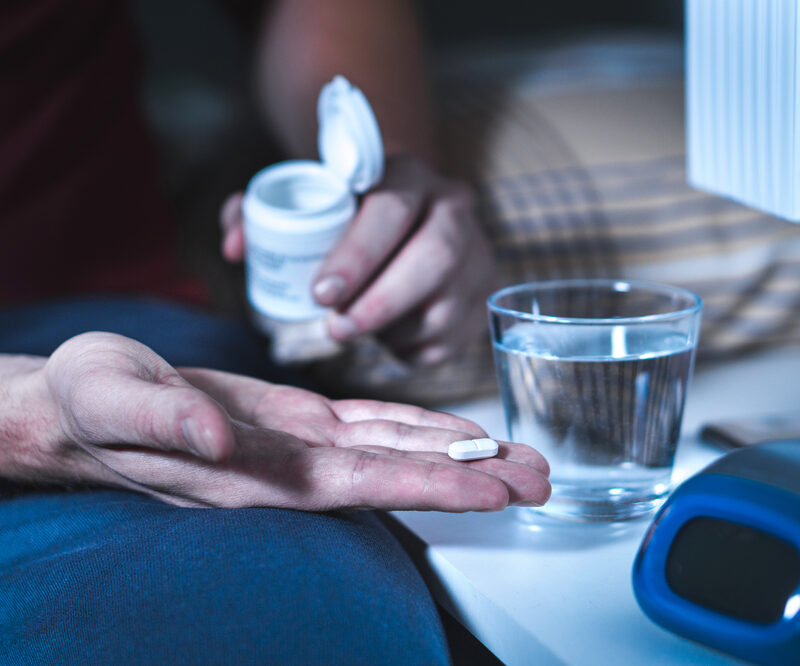A chemical that can hasten the time it takes to fall asleep and therefore directly improve your recovery sounds like a dream come true, especially if you’re someone who suffers from insomnia.
Practically everyone who lifts has heard about melatonin, and how you can use external melatonin supplements in order to go to sleep much more quickly.
However, the question you might have is, if you can’t sleep, and that’s compromising your recovery period, should you take melatonin or should you not? We’re going to go into details as to why you should and shouldn’t.
What Is Melatonin and Does It Work?

Melatonin is a hormone that’s released naturally in our bodies right before we go to sleep. This leads to the assumption that you should take melatonin because it’s going to make you fall asleep, right?
Well, according to the literature, the data on melatonin is inconsistent. For the most part it does make you fall asleep 7 minutes faster on average. But it doesn’t improve your sleep quality, because you wake up really tired afterwards.
Why Do You Wake Up Tired After Taking Melatonin?
Melatonin actually rises when you’re about to sleep, and then it drops lower and lower before you naturally wake up. About 2 hours after waking up is when you feel refreshed and at your peak, because melatonin is at its lowest at that point.
When melatonin was first produced as a supplement, the idea was to mimic our body’s natural melatonin production, so they made pills containing about 0.3-1mg of melatonin. That made you fall asleep faster. However, it didn’t really help during the night, because it ended up being broken down in the liver.
Companies fixed this by upping the dosage, sometimes up to 10x your body’s natural production. Your natural body basically needs 0.3-1mg of melatonin. So what’s going to happen to it when you’re giving it 10mg doses?
When you wake up after taking a high dose like this, melatonin is actually still high in your body, and it stays elevated after two hours, leaving you groggy and sleepy the next day.
What Are the Risks of Taking Melatonin?
The problem with a high dose of melatonin is that it makes your whole body go to sleep, including your pancreas. We know that the pancreas releases insulin, and it works at a slower pace when you have elevated melatonin in your system.
If you wake up in the morning and eat a high-carb breakfast, your blood sugar will be higher than usual. This is because you can’t regulate it as well since you can’t use insulin as well–and high blood sugar first thing in the morning is not a good thing.

Recommendations for Taking Melatonin
When it comes to taking melatonin, we understand that some people really need it. However, we recommend taking it conservatively, in lower dosages. You shouldn’t be taking more than a milligram of melatonin, and since everybody sells it at high doses nowadays, you’re probably going to have to break the pill up into pieces.
And keep in mind that if you do that, it’s not going to help too much in improving your sleep, and if you take the larger doses that most people take, you’re going to be tired in the morning and will also have trouble when you eat carbohydrates.
We hope this article answers your question about whether you should take melatonin. We’ll see you again next time!








